Balanced meals, less screen time to beat exam stress | Jaipur News
Nutritionists advised parents to ensure the students maintain a healthy diet and follow a pattern of small and frequent eating throughout the day. “During examinations, students usually have two broad responses: they either forget to eat or eat too much. In both situations, parents have an important role to balance the diet and make sure students do not overeat, especially sugary foods. Students also should control their intake of energy drinks.
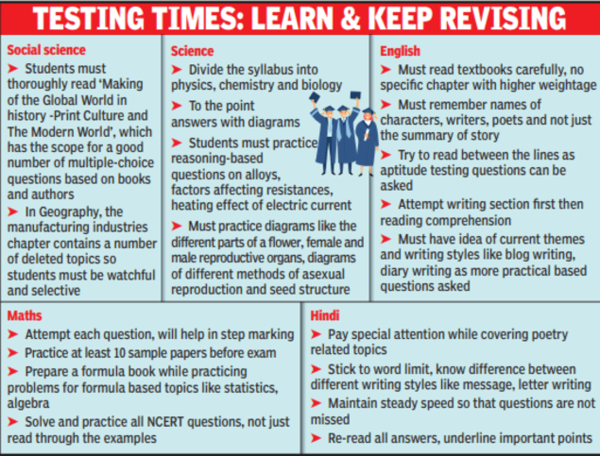
Parents must ensure that the students’ carbohydrate intake is evenly spread out throughout the day,” said city-based nutritionist Medhavi Gautam. During the stress-inducing days close to the examinations, it is also important that parents ensure children are having antioxidants and fibre-rich food along with some nuts to help them have good gut health, she said.
“Good gut health makes sure that other body parts also function properly, and the overall process keeps children calm during the preparation and examination time.
Along with this, adequate sleep is also important. Students should try to practise mocktest papers during those hours of the day as when the examination is conducted,” added Gautam. Students should also try to exercise daily, even if in small amounts, which will help increase their concentration while studying.
Teachers suggested that students must reduce their screen time during the board examinations to remain focused and stop wastage of time while studying. Parents can help children monitor their screen time, they said.
Maths-Class 10
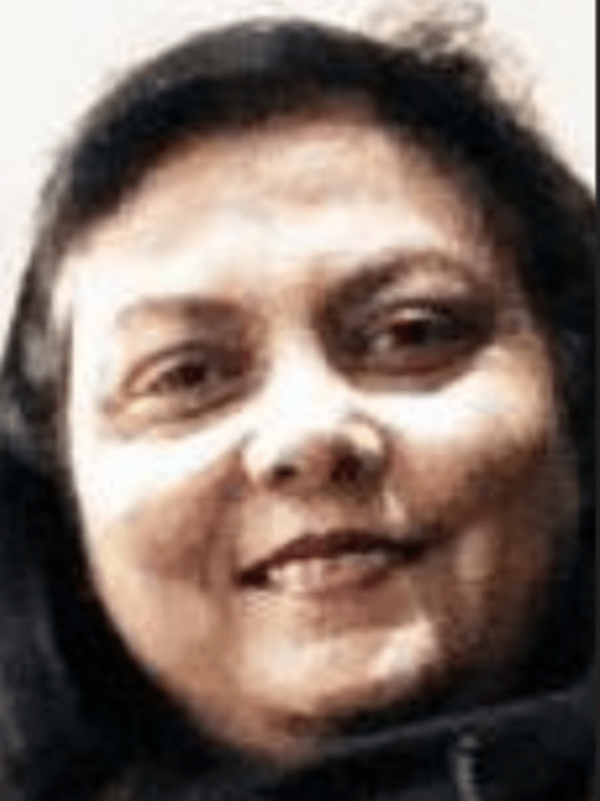
Anju Mukesh, a mathematics teacher for classes 10-12 at Maharaja Sawai Man Singh Vidyalaya, said students will appear for either mathematics (standard) or mathematics (basic) exam, in which the paper is divided into five sections.
“This year there is a new pattern. Students should keep this in mind and practice accordingly as the total number of questions have increased to 38. Earlier, questioned used to be fewer because the exam was term-wise. In Section A, which is MCQ based, students must be very careful. For Section E, that is case study question, questions would be easy and students will be able to find answers in the statements itself. But they must read carefully and have very clear concepts,” said Mukesh.
She said a major change this year is five-mark questions in mathematics, which was not there earlier. So students should attempt all questions, which will help them get marks, even for the step-work if one is not able to solve the questions completely.
“One of the most difficult topics for students is trigonometric identities, which carry three or four marks. If students are not confident, then they must focus on other parts of trigonometry and not just only on identities. This way students can avoid getting nervous in the examination centre,” said Mukesh. She advised students to solve all the problem questions in the NCERT book and not just read the example sums.
English-Class 10
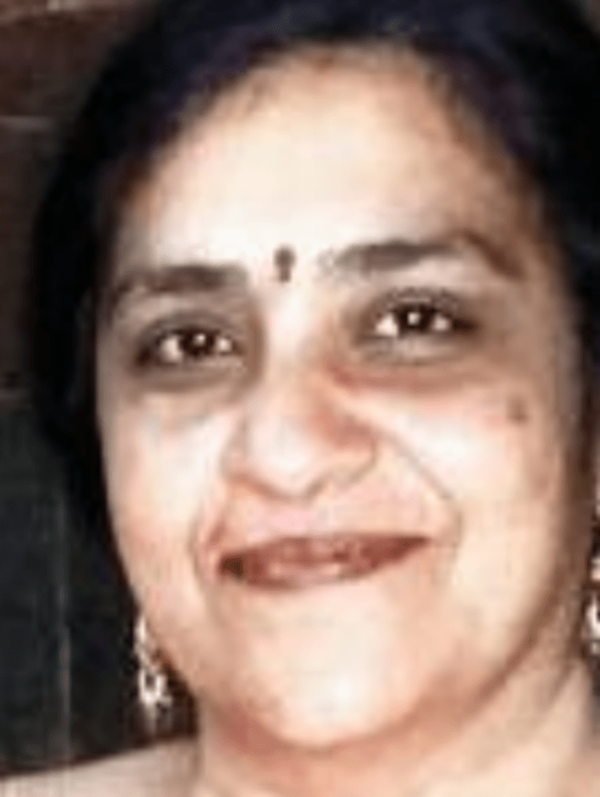
English subject experts said students must read their textbooks carefully as questions can be asked from any chapter. “In English, there is no such specific chapter which has higher weightage, so students must read all chapters thoroughly as questions can be asked from anywhere.
Students must remember names of characters, writers, poets and not just the summary of the story. These details can be asked in direct questions, where students can score easily,” said Sunita Bohra, PGT English from Cambridge Court High School.
She further said students must read the comprehension passages twice, try to read between the lines as questions can be asked to test the child’s aptitude, one word or one sentence questions where analysis and critical thinking skills are tested.
“Nowadays, there are competency based questions, for which students must re-read the passages. There can be questions with direct answers or questions with overlapping options which need a little critical thinking.
I suggest students that if they get easily distracted at the start of the examination, then they should attempt the writing section first and then attempt the reading section, when the student has better concentration and can spot the minute details too. This way, they can easily score in this section without making silly mistakes,” added Bohra.
Science- Class 10
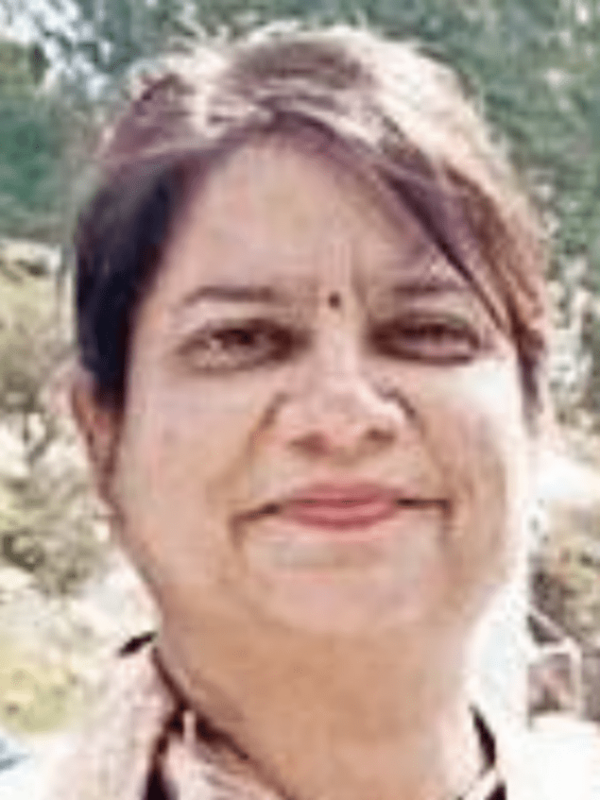
Science teachers said that according to CBSE Board Exam 2023 Assessment Scheme, the annual board exams will have a greater number of competency-based questions or questions that assess the application of concepts in real-life or unfamiliar situations.
Pooja Agrawal, a class 10 science teacher from Rukmani Birla Modern High School, said students should make a proper timetable according to schedule.
“Answering to the point and diagrammatic explanation would help in scoring high. Students must solve previous years’ CBSE papers and sample papers issued by the board. This will help them understand the paper pattern, the marking system and types of questions asked. All questions in the NCERT book are important, whether solved or unsolved questions and students must not ignore activities given in each chapter of NCERT as sometimes, activity-based questions are asked,” said Agrawal.
In numerical problems, students must write the correct formula. She said students lose marks in diagram-based questions, as they forget to mark it properly.
“Show the ray direction in ray diagrams of optics, the direction of current in circuit diagrams, students can even write down the formula when solving numerical. Students should note that few marks are allotted for the formula, and this will result in scoring the full mark for the numerical,” she added.
In biology, there are complex terminologies that could be memorised by doing regular revisions. “It is always good to write and understand those terms to get acquainted with them. In chemistry, students should practice the formation of molecules by drawing Lewis structures, covalent bonding in carbon compounds,” said Agrawal.
Social Science- Class 10
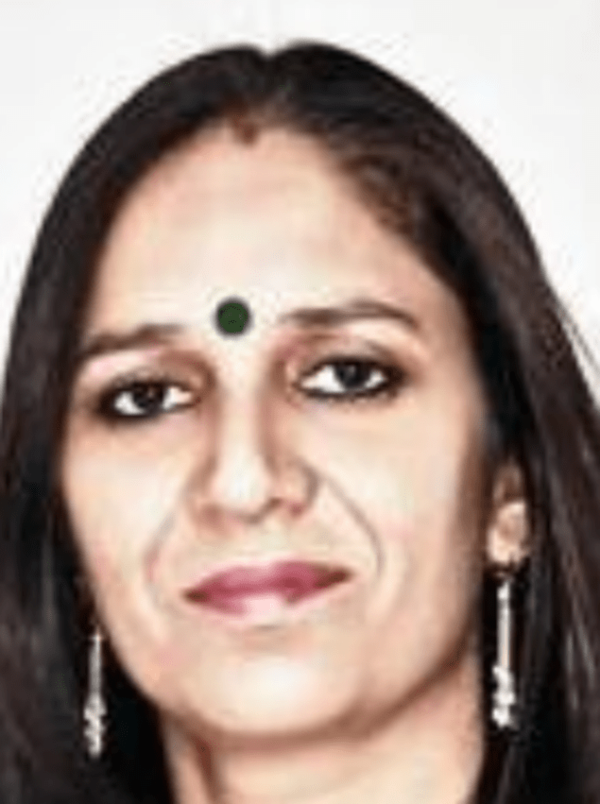
For social science, which is a theory-based subject, teachers said students must remember that answers can be written in points, with brief explanations along with examples and correct subject terminologies, instead of lengthy ones, because at times students are not able to attempt the complete paper.
Tripti Pareek, a TGT, social science teacher from Rukmani Birla Modern High School said, “Students must remember that the answer sheet should be examiner friendly, which means that children should underline the key phrases and terms, write in points instead of writing paragraphs. This will force the examiner to generously mark the paper. For geography and economics, the questions sound general, but they want specific terminologies, proper definitions.”
For history, teachers said answers should be supported by a historical example or reference. For political science, reference from current day events can be helpful for students.
“Another very easy scoring point in social science is correctly marking the maps, whether for history or geography. So along with theory, students must also practice marking the maps with the exact locations, and not just read the maps while reading the chapters. Though, another point to be noted is that questions can be asked from references mentioned in the maps, or text written below the map in the book, so thorough reading is very important,” said Pareek.
Hindi- Class 10
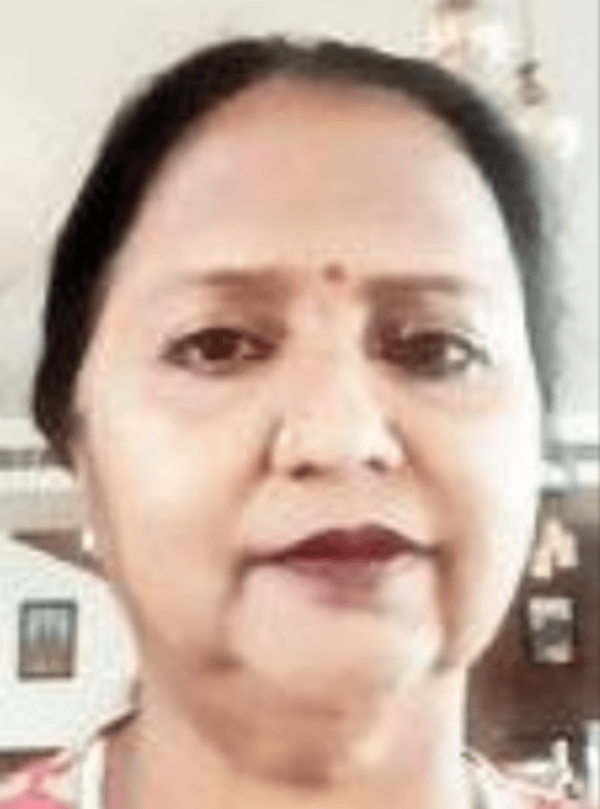
Hindi teachers said students must pay special attention while covering poetry related topics, its aspect as well as its craft that is language, verses, rasa.
“Students should read each chapter of the textbook carefully and underline the important points in the book itself so that they can revisit those points before the exam. While writing the exam, students must try to begin and end the paragraph with poetic lines only, this helps during the marking system,” said Rosy Gupta, a Hindi teacher for class 10 at Rukmani Birla Modern High School.
In the writing section, students must understand the difference between message and letter writing and keep in mind the word limit.
“Students must write answers to simple questions first, and not waste time thinking about questions where they are not that confident. They must take care of speed and accuracy while writing answers. After solving the complete question paper, students must re-read all the answers and underline the important points,” added Gupta. She further said that students must note that they have also written down answers for sub-questions of all the questions.




